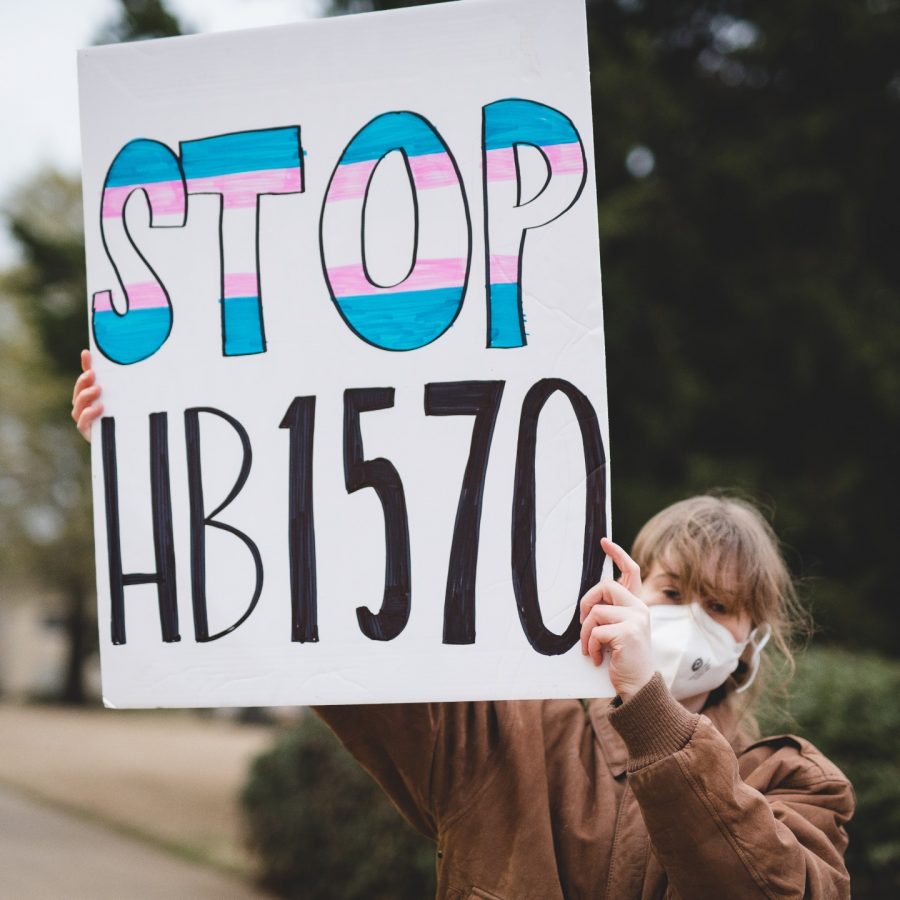Arkansas Passes the Strictest Anti-Trans Bill Yet
Arkansas state legislature has just passed action HB 1570, one of the strictest laws against transgender youth in the country. HB 1570, the third anti-trans bill passed in Arkansas this year, bans trans youth from having legal access to puberty blockers or hormone therapy administered by professionals. This law, amid many others in Arkansas and other conservative states, is impeding social progress. HB 1570 and every legislation targeting the transgender community are nefarious and violate individuals’ human rights.
HB 1570 is not the first law in Arkansas that targets the LGBTQ+ community. In late March, Gov. Asa Hutchinson signed a bill banning transgender women and girls from competing on school sports teams aligning with their gender identity. Hutchinson quickly signed another anti-trans bill granting medical professionals the agency to turn away patients on moral or religious grounds. This law puts those in the LGBTQ+ community as well as others in danger of discrimination and serious health concerns.
While the signing of these two prejudicial laws seemed to foreshadow support for HB 1570, Hutchinson actually vetoed the bill at its inception. He claimed the law constituted a “broad government overreach,” holding that legislation should not concern family or physician matters. Unfortunately, his veto was overridden.
A popular misconception in conservative states is that utilizing medical means to change gender is dangerous or irreversible. In reality, much of the medical care received by transgender individuals is psychological rather than purely surgical. Dr. Karen Tang, a gynecological surgeon, clarified the actual process of gender reassignment on Instagram in a direct response to the restrictive legislation. She said that youth can choose from various options, including “counseling and treatments like puberty suppressants,” which allow the child to “explore and confirm ideas of gender identity.”
These puberty suppressants effectively stop unwanted physical developments. However, if the patient decides they would no longer like to continue transitioning, they can stop taking their dosage, and puberty will continue as normal. Suppose the individual is slightly older and has already gone through bodily changes. They can opt to use gender-affirming hormones, which allow them to identify physically with the opposite gender and feel more comfortable in their own skin. As Dr. Tang mentioned in her livestream, both of these options have been proven to be completely safe and effective for trans youth.
Republican Rep. Robin Lundstrum, the representative who sponsored HB 1570, argued that the state should be able to intervene in this health matter just as it does in preventing youth from doing drugs or drinking alcohol prematurely. This baseless comment equates transitioning one’s gender to harming one’s body, undermining the legitimacy of being transgender. In denying trans youth safe and legal access to gender-affirming care, the state is only putting them in a greater state of danger.
Transgender youth are statistically at higher risk for suicide than others, making the implications of this situation even more grave. While the U.S. is more progressive compared to other countries in terms of LGBTQ+ rights and support, American trans individuals struggle with self-acceptance and criticism from society on a daily basis, and bills like this only make this experience harder for LGBTQ+ community members. Not only will the mental health of trans youth suffer, but there will undoubtedly be attempts to receive gender-affirming care in illegal ways, leading to an entirely new set of issues.
While little can be done to reverse this ban immediately, the ACLU is planning to sue the state of Arkansas, while transgender individuals and allies are openly protesting. Other organizations like the American Medical Association and the American Academy of Pediatrics are fighting back and citing studies that show the positive effects of gender-affirming care in reducing depression and suicide rates. While waiting for lawsuits to ensue, it is vital to show transgender youth in Arkansas support on a local level in any way possible.
The actions taken in Arkansas to target the transgender community have significantly set us back as a country. These bills infringe on the human rights and liberties of American individuals, limiting their say in what they can do with their own bodies. Blurring the line between state and personal interests is a dangerous game, one that will result in irreversible and destructive consequences. Law is meant to be objective and should provide for the safety of citizens.
Kristofer Eckelhoff, a trans voice coach who formerly lived in Arkansas and experienced the discrimination of the state first-hand, has spoken out about these legislations. “We were always taught, you know, love the sinner, hate the sin. How about just stop at love? You don’t have to understand me or agree with me to respect me and to honor my civil rights that everyone should have.”
Madeline Byrne, FCRH ’23, is a psychology major from Freehold, N.J.










































































































































































































